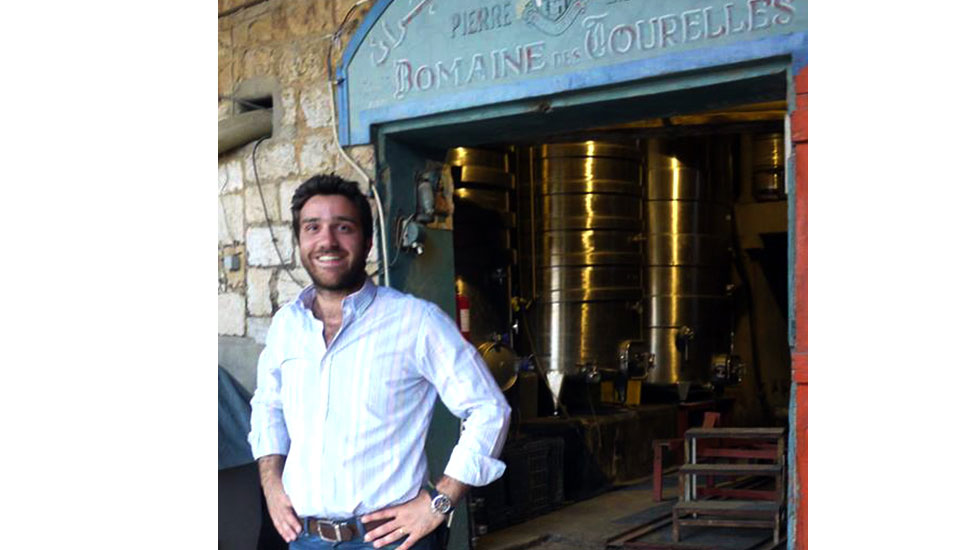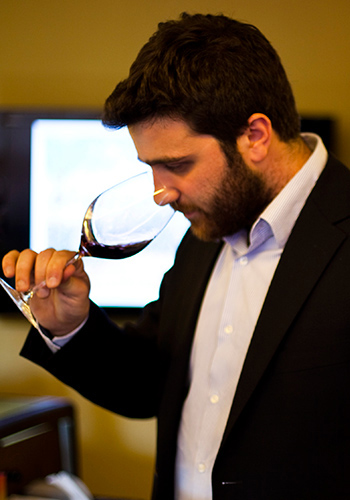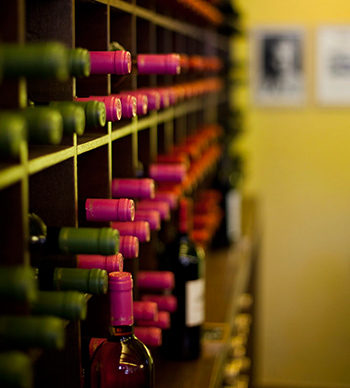FACES OF THE ECONOMY: Faouzi Issa
Faces of Economy – Lebanon
FACES OF THE ECONOMY: Faouzi Issa
There are 1.4 million workers in Lebanon – this is the story of one of them.
I was ten years old and I used to hate it, says Faouzi Issa of his family’s Sunday lunch tradition some twenty years ago at Domaine des Tourelles vineyard which his father now owns.

FACES OF THE ECONOMY: Faouzi Issa
There are 1.4 million workers in Lebanon – this is the story of one of them.
By Elias Sakr
BEIRUT, Lebanon – I was ten years old and I used to hate it, says Faouzi Issa of his family’s Sunday lunch tradition some twenty years ago at Domaine des Tourelles vineyard which his father now owns.
Faouzi’s father was a good friend of late Pierre Brun, the founder of Domaine des Tourelles.
“I never had a choice. My father and Pierre loved to unite our families every Sunday and maintained this tradition for years so I had to accompany my family every weekend to lunch at the vineyard… I hated it because I had to spend time with old people,” Faouzi recalls.
Two decades later, Faouzi is running the winery which his father and a partner pooled money in 2000 to buy from Brun’s French relatives who inherited it while living abroad.
Back then, Faouzi was 15 years old and as he grew older so did his attachment to the land where he spent most of his weekends as a child.
Three years later, he enrolled in the agricultural engineering program at the American University of Beirut.
“I was first interested in land cultivation and juice production but I wasn’t particularly fond of wine making,” Faouzi explains as he evokes how his passion for wine making developed shortly after he starting lending his father a hand at the winery while studying at AUB.
Soon after he graduated, Faouzi left Beirut to France to acquire a masters degree in winemaking from Supagro de Montpellier, the same university that Brun graduated from as a winemaker back in 1937.
Faouzi then remained in France for another two years to gain more experience by working with Domaine Renee Rostaing in the Cote Rotie region and then with the renowned Chateau Margaux in the Bordeaux region as an assistant winemaker for over a year.
His Father then asked him to return to Lebanon to join Domaine des Tourelles.
At first, Faouzi hesitated. He wanted to be the chief winemaker if he was to return to Lebanon to run the wine estate. Back then, his father, Elie Issa was handling the management while entrusting two foreign winemakers, a French and a Spanish expert, with the production process.
Eventually, Faouzi got what he wanted and more. While his first year as a winemaker was a tough experience, he took over more responsibilities as he sought to build a brand name for Domaine des Tourelles.
“I used to spend the day at the vineyard in the Bekaa valley and at night I used to go to Beirut and visit pubs to directly introduce and market our brand,” Faouzi says.
Faouzi’s day starts at 6:30 in the morning and despite working for 14 to 15 hours he still finds time to socialize with friends. He and his wife Ruba like to frequent restaurants after a long work day.
“I used to spend the day at the vineyard in the Bekaa valley and at night I used to go to Beirut and visit pubs to directly introduce and market our brand.”
Ruba, who delivered a baby boy a week ago, is a hard worker just like Faouzi. Also, an AUB graduate, Ruba left to Dubai where she worked for four years before returning to Beirut to join a multinational FMCG.
“As a working woman, she was understanding and morally very supportive of my decisions, playing a big role in my road to success,” Faouzi says.
Five years after he took over the realm of Domaine des Tourrelles, Faouzi managed to increase the sales turnover by six folds.
And despite the economic slowdown, he expects sales to steadily grow over the coming years as Domaine des Tourelles conquers new international markets after being classified as the “most seductive” winery in Lebanon by the Financial Times.
Domaine des Tourelles is now available in more than eight countries around the world and has won several awards since 2006.
Among those awards, Domaine des Tourelles Rouge 2009 won the gold medal at the “Vinalies Internationales des Oenologues de France, Paris 2012”, Syrah du Liban 2006 won the silver medal at the worldwide “Syrah du monde 2009” contest and Marquis des Beys 2007 won the bronze medal at the worldwide “International Wine & Spirit Competition 2011” contest. 
Domaines des Tourelles’ Arak Brun, Lebanon’s traditional alcoholic beverage, won the prize “Best Arak, Amateur’s Choice” during HORECA 2011 exhibition in Beirut.
As it expanded to foreign markets, Domaine des Tourelles also cemented its presence in Lebanon by opening in 2011 its own-cellar boutique at the heart of Beirut at 250 Monot Street.
Despite the success of many Lebanese winemakers, Faouzi says the government needs to play a bigger role in supporting the wine industry but argues that it shouldn’t be blamed alone for failing to promote Lebanese winemakers.
The private service sector, which constitutes the backbone of the Lebanese economy, assumes a big share of the blame as well.
“Ruba took me to dinner at a fancy restaurant in Beirut a month ago and they had a five-pages wine menu but none of the brands offered were Lebanese. When I asked why, the waiter said they simply don’t offer local wine,” Faouzi laments.
“It is this attitude and ignorance of Lebanon’s rich heritage of indigenous grapes that annoys me the most. If you think imported wine is better, it is fine by me. But give your customers a choice and let them decide for themselves.”
EDITOR’S NOTE: Marcopolis will frequently profile a different hardworking citizen. Nominations can be sent by you, friends, family or even coworkers, for inclusion in the “Face” series. Tell us your story. Send it to contributing business correspondent: T.K. Maloy: tkmaloy@gmail.com